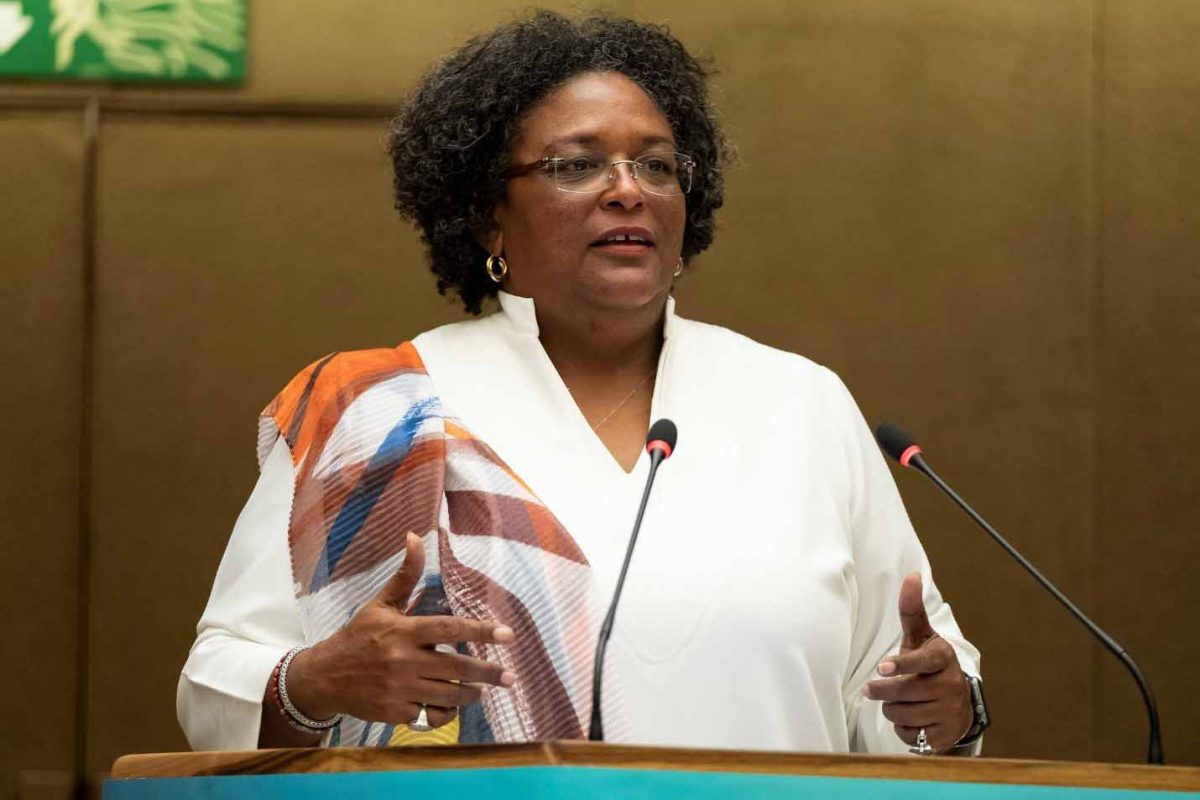LONDON, (Reuters) – Barbados Prime Minister Mia Mottley used a speech in London yesterday to call for a global conversation on reparations for countries that saw their people enslaved, sometimes for centuries, under colonial rule.
“The conspiracy of silence has diminished the horror of what our people faced,” Mottley said in a lecture at the London School of Economics where she studied in the early 1980s.
Barbados was one of Britain’s first slave colonies. English settlers first occupied the Caribbean island in 1627 and, under British control, it became a sugar plantation economy using enslaved people shipped from Africa.
Slavery was abolished in 1834 and Barbados became fully independent in 1966 and then a republic in 2021, though it has remained part of the Commonwealth.
Mottley had also had a meeting with new British foreign minister, and former Prime Minister, David Cameron while she was in London.
Questioned whether she had asked him directly about the UK making reparations payment, which she had earlier cited an estimate of being worth $24 trillion based on a “standard definition” of damage, she said she would not disclose the details.
But having also referred to how Britain’s King Charles had acknowledged on a trip to Rwanda last year when he was still the Prince of Wales that it was time to have “the conversation” about the wrongs of slavery, she added: “I hope the foreign secretary will take his lead from his Majesty”.
She also said countries like hers did not expect reparation damages to be paid in one lump sum or over a short time frame. Instead she likened what needed to be done to the extraction of wealth in the first place, which had happened over centuries.
“I want to salute the King for having the courage to recognise this is a conversation that the time has come to have,” Mottley said.
Her comments were made in moving fashion, interspersed between a series of poems by Barbados’ first poet laureate about slavery and injustices, such as the 2020 killing of Floyd George by a white police officer in Minneapolis, Minnesota.
Mottley has become a prominent voice in recent years in global discussions about inequality, climate change and overindebtedness.
Having just attended the UN’s COP 28 climate summit in Dubai she repeated calls for global taxes to be levied on the financial services, oil and gas, and shipping industries to help poorer countries pay for the costs of global warming.
“The world needs to share the burden,” Mottley said. “The world needs us to rise up and change our behaviour.”






